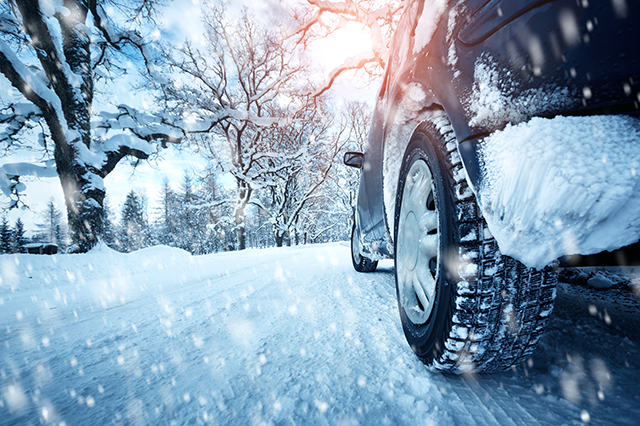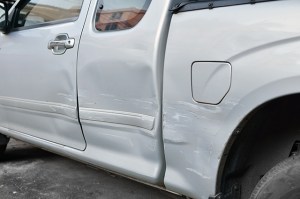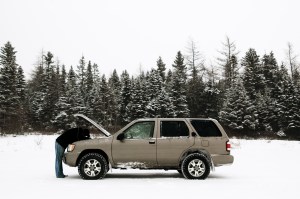Sometimes the weather takes a turn for the worse and it could spell trouble for your car. Extreme weather conditions like heavy snow, hail and intense heat can cause expensive damage. Taking the time to properly care for you car and protect it from the elements will keep it looking as good as the day you first drove it home.
Winter: Snow and Ice
To protect your car from harsh winter conditions, consider taking a few steps to winterize your car, and make sure to stay on top of maintenance and cleaning.
Have your car washed and waxed in the fall before the snow flies as an added safeguard against the elements. If you have a garage, use it when snow is in the forecast even if it means having to clean it first. Keeping the snow off your car prevents possible damage that can occur while clearing off snow and ice.
It’s also important to wash your car regularly during the winter months. The salt and chemicals used to treat roads could cause corrosion. This is also the time to spring for the extra charge and get an undercarriage wash. This ensures there’s not an unseen buildup underneath your car eating away at the metal.
Spring: How to Protect a Car From Hail
We all cringe any time a pebble bounces off the road and hits our car. Even the smallest rocks can leave dents, scratches or crack your windshield. Imagine hundreds of tiny – and not so tiny – pebbles falling from the sky in the form of hail. It can be incredibly damaging to homes, crops and cars.
The best thing you can do to protect a car from hail is to try to find a covered area. Pull your car into a garage if hail is in the forecast. If you’re out, try and find shelter in a parking garage where you can wait out the storm. If you can’t find shelter for your car during a hail storm, use a hail cover or blankets as a last resort. There’s usually not much warning before a hail storm strikes. Only go outside if it’s safe.
Does insurance cover hail damage? Learn more.
Summer: Sun and Heat
The sun can also do its fair share of damage to your car. Over time, it can fade fabric seats, damage leather and even warp plastic trims. Especially in very warm climates with constant heavy sun, you want to protect your car inside and out to keep it in good condition.
Once again, a good car wax is your friend. This shields your paint from cracking and peeling due to heat damage. It also helps remove any dirt that can harm the finish and keeps blowing sand from creating micro scratches that can further dull a car’s shiny exterior.
Seat covers help protect any type of seating, but leather seats need special attention. Use a leather conditioner to prevent cracking and later tearing. This also helps keep seats clean and prevents dirt from damaging the leather. A windshield shade keeps the dashboard and front seats from being exposed to the sun’s harsh rays and keeps the car temperature cool.
All Seasons: Rain
How can water harm your car? Well, rain isn’t made up of perfectly pure drops of water. Rain drops collect pollutants, also known as acid rain, which is not good for your car. It’s not something you’ll see eating away at the paint and it’s not so corrosive that it can hurt you, but over time it causes damage by dulling your car’s finish.
Wax your car as a part of regular car care to keep a protective coating between the paint and the rain. You should also wash your car after a storm to rinse off any residue. The water that sprays back from the road is full of dirt, oil and chemicals, so even if the rain has cleared away any visible dirt from your car, an extra rinse and undercarriage wash can’t hurt.
Learn how AAA Insurance can help protect your vehicle.
What are your tips for keeping harsh weather from damaging your car? Share them in the comments.















